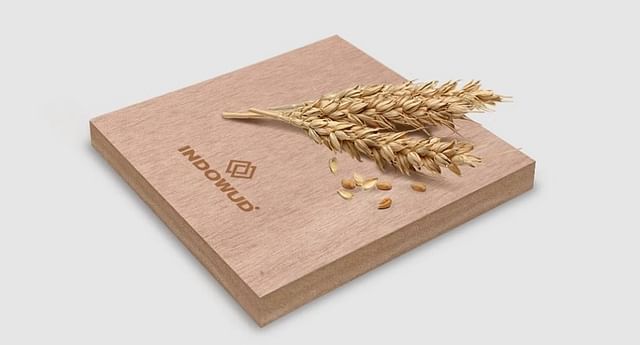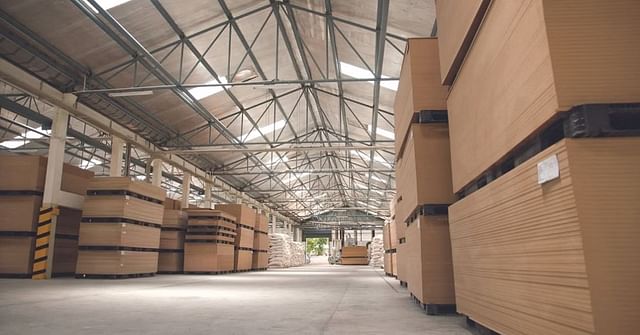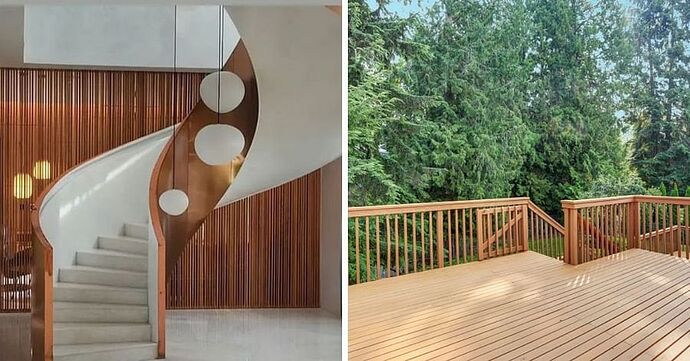Entrepreneur’s ‘Woodless’ Plywood Made with Rice Husk Saves 20000 Trees From Being Cut
December 26, 2022
Chennai entrepreneur B L Bengali launched the NFC Board, a sustainable alternative to plywood that involves no wood in its making, and is water-proof, malleable, and fully recyclable.
After working in the plywood manufacturing industry for four decades, entrepreneur B L Bengani realised that there was a dire need for an alternative that did not involve cutting trees.
Amid the pandemic alone, India lost 14% of its tree cover, which made carbon emissions equivalent to those given out by 570 million cars.
Aware of this alarming statistic, the Chennai resident sought to find an alternative that would not harm the environment in any manner. This thought, combined with two years of research, resulted in Bengani innovating a zero-wood board made with agricultural husk to replace plywood.
Named the Natural Fibre Composite Board, or ‘NFC Board’, this is termite-proof, waterproof, flame retardant, 100% recyclable material that can be moulded and shaped in any desired shape, he says. In addition to agricultural husks like that of rice and wheat, it also uses PVC resin imported from Japan and South Korea.
In 2019, Bengani launched Indowud NFC, which is akin to natural timber and plywood in both looks as well as performance.
For mother nature
Bengani’s career in the industry began in the 80s in a plywood shop. In 1996, he launched his own company Uniply Industries, which was listed on the Bombay Stock Exchange.
He says, “We would import round timber logs from Myanmar. In 2014-15, the Myanmar government banned the export of these logs, and we faced a problem with raw materials. That’s when I started thinking of a sustainable, eco-friendly alternative.”
He realised that an alternative to wood was lying right near his factory, in the form of agricultural husk.
“We are seeing the effects of global warming and deforestation. The entire ecosystem is being harmed. We thought of taking the first step to protect mother nature and doing something. The idea was to develop an alternative to wood, without compromising on quality,” adds Bengani.

Natural Fibre Composite Board by Indowud.
His research into the material began in 2017, for which Bengani spent around Rs 20 lakh. Several machines were spoiled in the process and the team encountered many failures. But in late 2019, they became successful in building the NFC board.
Raw material for the board, rice husk, is procured from nearby farmers and rice mills. “The factory is situated in Gummidipoondi on the outskirts of Chennai. There are many rice mills and fields within a 10 km radius around the factory,” he explains. “As paddy is abundantly cultivated in the state, there is never a shortage for raw materials.
Bengani also notes that the material can be moulded into any shape of choice and is suitable for exterior applications. “The boards can withstand any climatic conditions and can be used in place of GFRC (Glass Fiber Reinforced Concrete) for exteriors. The factory’s capacity is 5,000 tonnes,” he shares.

Indowud NFC boards stacked at the factory in the outskirts of Chennai.
He also adds that by using agricultural husk, the company saves more than 20,000 trees from being cut.
“We have supplied to Australia and New Zealand, which are using a lot of sustainable products. We have also supplied to Oman, and are now working on exporting to the US,” he notes.
Bengani hopes that more companies will follow the path and contribute to saving the environment by protecting the forest cover.
Edited by Divya Sethu
